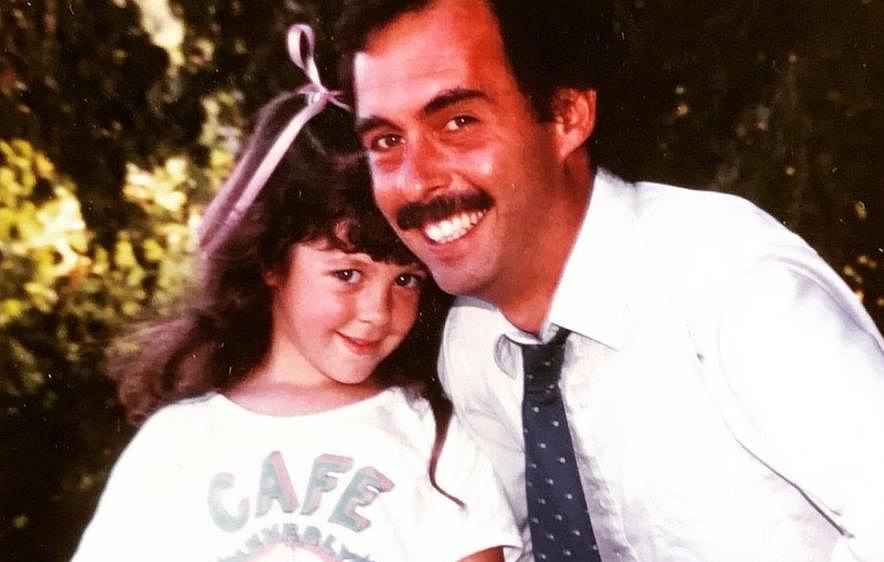






See listing of Recent and Most Popular articles on the Home Page
Health & Wellness
Category: Technology / Topics: Addictions • Communication • Family • Mental Health • Parenting, Parents • Social Issues • Social Media • Technology • Trends
Parents of the Social Media Generation are Not OK
by Samantha Murphy Kelly / CNN Business
Posted: December 10, 2021
Struggling to understand and navigate the potential harms that social media can have on their kids' mental health as they grow up…
Editor's Note: In a coffee group I attend, where most are retirees and grandparents, the topic of grandchildren's use of social media comes up with some regularity. Congress, too, has been concerned, with Instagram in the hot seat this week. Following is an excerpt of an article by Samantha Murphy Kelly that appeared on CNN Business on Wednesday (December 8), which focuses on these concerns. You'll find a link to the full article at the bottom of this page.
(CNN Business ) Last September, just a few weeks into the school year, Sabine Polak got a call from the guidance counselor. Her 14-year-old daughter was struggling with depression and had contemplated suicide.
"I was completely floored," said Polak, 45, who lives in Valley Forge, Pennsylvania. "I had no clue she was even feeling remotely down at all. When I asked her about it, she just kept saying she wanted to get away from it all ... but I didn't know what that meant."
After taking her to a crisis center, which banned phone use for anyone checking in, Polak learned from her daughter that the pressures of social media were driving her increased anxiety. The main source of stress: waiting for her friends to open and respond to messages and photos on Snapchat.
"It became really addictive [for her]–the sense that you always have to be on, and always have to be responding to someone in order to be seen or to exist," she said. "She would look at her phone and go from calm to storming out of the car, and the rest of the night, just curled up in her bed."
Polak turned on some of the phone's parental controls, but they were easy for her daughter to circumvent. She took the phone away but worried this move would only drive her daughter to think about taking her own life again. She gave the phone back only to find her daughter "self-soothing" on another social app, TikTok–so much, in fact, that "she literally believes that she can't fall asleep without it." As Polak put it, her daughter "feels lost, like, 'I have no idea what to do with myself if I'm not on social media.'"
Polak is among a generation of parents who did not spend their childhoods with social media apps and are now struggling to understand and navigate the potential harms that social media can have on their kids' mental health as they grow up. In interviews over the last month, nearly a dozen parents spoke with CNN Business about grappling with how to deal with teens who experience online harms such as bullying, body image issues and pressures to always be Liked. Most of the parents said these issues either began or were exacerbated by the pandemic, a time when their children were isolated from friends, social media became a lifeline and the amount of screen time increased.
The issue of social media's impact on teens gained renewed attention this fall after Facebook whistleblower Frances Haugen leaked hundreds of internal documents, some of which showed the company knew of Instagram's potential to negatively impact one's mental health and body image, especially among teenage girls. But Haugen also touched on the impact on parents. During her testimony before Congress in October, Haugen cited Facebook research that revealed kids believe they are struggling with issues like body image and bullying alone because their parents can't guide them.
"I'm saddest when I look on Twitter and people blame the parents for these problems with Facebook. They say, 'Just take your kid's phone away.' But the reality is that it's a lot more complicated than that," she said in her testimony.
"Very rarely do you have one of these generational shifts where the generation that leads, like parents who guide their children, have such a different set of experiences that they don't have the context to support their children in a safe way," she added. "We need to support parents. If Facebook won't protect the kids, we at least need to help the parents support the kids."
Facebook, which rebranded as Meta in October, has repeatedly tried to discredit Haugen and said her testimony and reports on the documents mischaracterize its actions and efforts. But the outcry from Haugen's disclosures pressured Facebook to rethink the launch of an Instagram app for children under 13. (Children under the age of 13 are not currently permitted to create accounts on any Meta platforms.)
It also helped spur a series of congressional hearings about how tech products impact kids, featuring execs from Facebook, TikTok and Snapchat's parent company, Snap. This week, the head of Meta-owned Instagram is set to appear before Congress as lawmakers question the app's impact on young users.
In their testimonies, the TikTok and Snap executives showed humility and acknowledged the need to do more to protect their platforms. Jennifer Stout, Snap VP of global public policy, said the company is developing new tools for parents to better oversee how their children are using the app. Instagram previously said it's "increasingly focused on addressing negative social comparison and negative body image."
Ahead of the Congressional appearance this week, Instagram introduced a Take a Break feature which encourages users to spend some time away from the platform. The company also said it plans to take a "stricter approach" to the content it recommends to teenagers and actively nudge them toward different topics if they've been dwelling on any type of content for too long. It's also planning to introduce its first tools for parents, including an educational hub and parental monitoring tools that allow them to see how much time their kids spend on Instagram and set time limits, starting next year.
"You can offer tools to parents and you can offer them insights into their teen's activity, but that's not as helpful if they don't really know how to have a conversation with their teen about it, or how to start a dialogue that can help them get the most out of their time online," Vaishnavi J, Instagram's head of safety and well-being, told CNN Business this week.
Meanwhile, members of Congress have shown rare bipartisanship by uniting in criticizing tech companies on the issue. Some lawmakers are now pushing for legislation intended to increase children's privacy online and reduce the apparent addictiveness of various platforms–though it remains unclear when or if such legislation will pass.
For some parents, these changes aren't coming quick enough. Unsure what else to do, parents feel they have to go it alone, whether that means pushing for changes in their school districts or looking for advice from peers on some of the same social networks they feel have caused their families pain.
A longtime concern that's getting worse
Even before Haugen's disclosures, there were concerns in some households that the risks social media platforms posed to their kids were only growing.
Katherine Lake said social media became "everything" for her 13-year-old child during the pandemic to pass the time at home and connect with friends. She said her teen fell down a rabbit hole of pages about mental health and, later, posts about self harm–something her kid "didn't even know about before Instagram." The teenager was hospitalized last spring after attempting suicide.
. . .
Some data also support that mental health issues among young people on social media are on the rise. Bark, a paid monitoring service that screens social media apps, personal messages and emails for terms and phrases that could indicate concerns, said it saw a 143% increase in alerts sent around self-harm and suicidal ideation during the first three months of 2021 compared to the year prior. (Parents receive alerts when Bark detects potential issues, along with expert recommendations from child psychologists for how to address them.)
. . .
But that started to attract direct messages from older men on Instagram. She kept this from her parents, she said, because she thought "they'll never understand what it's like to be young [right now]."
"They always had societal pressures to look a certain way or behave a certain way, but that was in a magazine or on TV. They could have turned it off. For us, we're attached to our phones all the time. When we're waiting at the bus stop or walking to class, we're always reminded of these ideals."
Looking for answers
When Julia Taylor needs help making parenting decisions, she sometimes turns to a Facebook group called "Parenting in a Tech World." Taylor's son has ADHD, which she said causes him to "become hyper-focused on certain things," including "anything with a screen." Taylor, a single mom from the Denver area, wanted him to have a smartphone, "but he was hacking every parental control, sometimes staying up all night."
. . .
On this issue, however, there are no easy answers. Social media and smartphones are here to stay–and taking them away could risk undermining a child's social relationships and sense of independence. According to Alexandra Hamlet, a clinical psychologist in New York City, it's important for parents to help teenagers navigate both the online and physical world, by being understanding and nonjudgmental. "If we can teach and support our children to use the same skillsets to navigate each world, we increase our chances of attaining mental health," she said.
There's now a wide range of policy ideas being batted around to help parents and kids. Some critics, including Haugen, said tech companies should move away from algorithmic news feeds that can drive users down rabbit holes. Two Democratic Senators have touted legislation called the Kids Act, which would ban autoplay settings and push alerts with the hope of limiting screen time. And the Organization for Social Media Safety said it is now working with Congress to try to push through legislation that would require third-party parent monitoring apps on all social media accounts of kids of a certain age.
. . .
During her testimony, Haugen said schools and organizations such as the National Institutes of Health should provide established information where parents can learn how to better support their kids. Meanwhile, the Organization for Social Media Safety is currently rolling out a program with DARE (Drug Abuse Resistance Education) to be part of that curriculum in thousands of schools by the end of the current school year to educate students about the dangers of social media
Polak, the mother whose daughter had suicidal thoughts, has proposed a Mental Health Awareness Week at her daughter's school that would include screenings of Childhood 2.0 and The Social Dilemma–two documentaries that touch on how platforms are impacting the well-being of its users.
Polak said her daughter is now doing better and occasionally accesses social media with time restrictions. "But once a week we have a social media brawl, where she'll present me with, 'When can I go back on Snapchat? When can I get back on TikTok?' It's a constant struggle, and there's a lot of peer pressure from friends, good friends, to get back on some of the apps."
But on a recent night, she found her daughter quietly playing with their family cat for half an hour in her room. "I thought, 'Oh my gosh, that's what's missing–the little everyday stuff that curbs our anxiety," she said. "It's just completely missing from teenage life at this point."
Search all articles by Samantha Murphy Kelly
Posted: December 10, 2021 Accessed 432 times
![]() Go to the list of most recent Health & Wellness Articles
Go to the list of most recent Health & Wellness Articles
![]() Search Health & Wellness (You can expand the search to the entire site)
Search Health & Wellness (You can expand the search to the entire site)
![]() Go to the list of Most Recent and Most Popular Articles across the site (Home Page)
Go to the list of Most Recent and Most Popular Articles across the site (Home Page)
 Loading requested view...
Loading requested view...